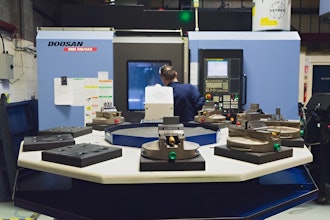Some manufacturers miss seeing the value in an integrated quality management system (QMS), and this is especially true in the contract manufacturing industry. In many cases this is because the old mindset is that quality activities only happen at the end of the line. In other cases, it’s because the costs of trying to manage quality without the right tools is hidden.
In contract manufacturing, the focus is often on reducing costs rather than on improving quality, but this is a short-sighted approach. Research from Dr.W. Edwards Deming proved that companies that focus on reducing costs increase their costs and reduce their quality over time, while those that focus on quality reduce costs and increase or maintain higher quality standards.
A focus on quality improves a company’s results in many ways.
No. 1 - Reduce Rework
Companies that don’t worry about quality until the end of the production process have higher rework rates than those that build quality into their strategy and processes. The companies that don’t build quality into their processes don’t discover production issues until the product is complete, when they may have to rework an entire lot. This is also the most expensive point in the cycle to do rework, since it may require undoing work done in several operations downstream from the problem step. By focusing on creating processes that produce quality output, companies can take action as soon as those processes begin to veer off course. A QMS system helps ensure that process monitoring occurs and provides mechanisms for corrective actions. A QMS system that includes Advanced Product Quality Planning (APQP) capabilities goes a step further by creating products and processes designed for quality results.
No. 2 - Ensure Compliance
Most industries from medical devices to automotive to food and beverage have mandatory compliance requirements from various government agencies, and all companies have customer requirements they must comply with. In most cases, the manufacturer must be able to show detailed compliance records quickly, accurately and consistently. This process can be extremely time-consuming when working with paper-systems or even spreadsheets. Both media are error-prone, hard to share and have no built-in controls. In contrast, a QMS enforces compliance with procedures, ensures accuracy and promotes shared responsibility for compliance and quality.
No. 3 - Control Costs
Scrap and rework can make up a big part of a product’s cost. Any action that works to reduce or eliminate issues that allow manufacturing non-conforming products will automatically reduce costs. A QMS helps eliminate both scrap and rework by helping to ensure that the entire organization stays focused on producing quality products. When margins are as thin as they are in the contract manufacturing industry, even small savings per unit can make all the difference to profitability.
No. 4 - Stay Competitive
It’s easy to compete by offering the lowest price, but it’s hard to stay in business for long with that strategy. Focusing on quality is a sustainable competitive edge that enhances your status as a supplier and makes it easier to command premium pricing.
Competing on quality doesn’t mean that your product exceeds the required specs. It means you consistently meet those specs and deliver on time. QMS helps by ensuring that your processes promote quality performance. They enable anyone on the team to call attention to quality issues, and they help promote a quality mindset throughout the organization.
No. 5 - Eliminate Errors
QMS systems include capabilities for tracking training, so you know your operators have the skills necessary to complete their assigned tasks. They also include document management so that you can ensure that the team works with the latest specs and process directions.
Many industries, especially contract manufacturing, have frequent engineering change orders that affect work in process. QMS software ensures that the latest revisions and documents are available. With paper-based systems, people often pull old routings or marked up drawings from their files. There is no easy way to ensure people work to the right set of specs—except an integrated QMS solution.
No. 6 - Simplify Recordkeeping
Regulated industries such as medical devices, pharma and food and beverage are subject to periodic surprise audits. The surprise factor leaves no time to catch up on the filing backlog or to synchronize spreadsheets. QMS software has audit management capabilities built in, and you can rely on the audit trails and compliance protocols to produce consistent reports quickly, helping you to ace the audit.
No. 7 - Drive Revenue
People don’t think of quality as a revenue driver. They are more likely to consider it a cost — but it does drive revenue. A QMS solution helps ensure that you have healthy margins for the incremental revenue by eliminating non-value-added activities, reducing errors and controlling costs. Consistent quality and delivery performance make your company a more desirable supplier, making it more likely that customers will place future business with you.
Again, according to Deming, “No one can measure the loss of business that may arise from a defective item that goes out to a customer.”
This maturity model shows how companies improve operating results as they move further along the spectrum from considering quality an afterthought to recognizing it as a foundational principle of the organization’s strategy.
Only with a QMS in place will a company approach the green columns, where quality becomes a profit driver instead of a potential liability.
Successful companies don’t manage by keeping their strategy in a spreadsheet or on a bunch of index cards. They succeed because management assumes the mantle of leadership and helps the entire organization execute against the strategy in the most efficient way.
Quality is neither a process nor an activity — it’s a philosophy and a strategy that must be pervasive throughout every department and every level of the organization. Quality must be a responsibility shared by the entire organization, not just the QC department. QMS software helps to reinforce this ideal by making quality a shared responsibility available to all.
Sharon Ward is the senior director of Solutions Marketing at QAD.





















